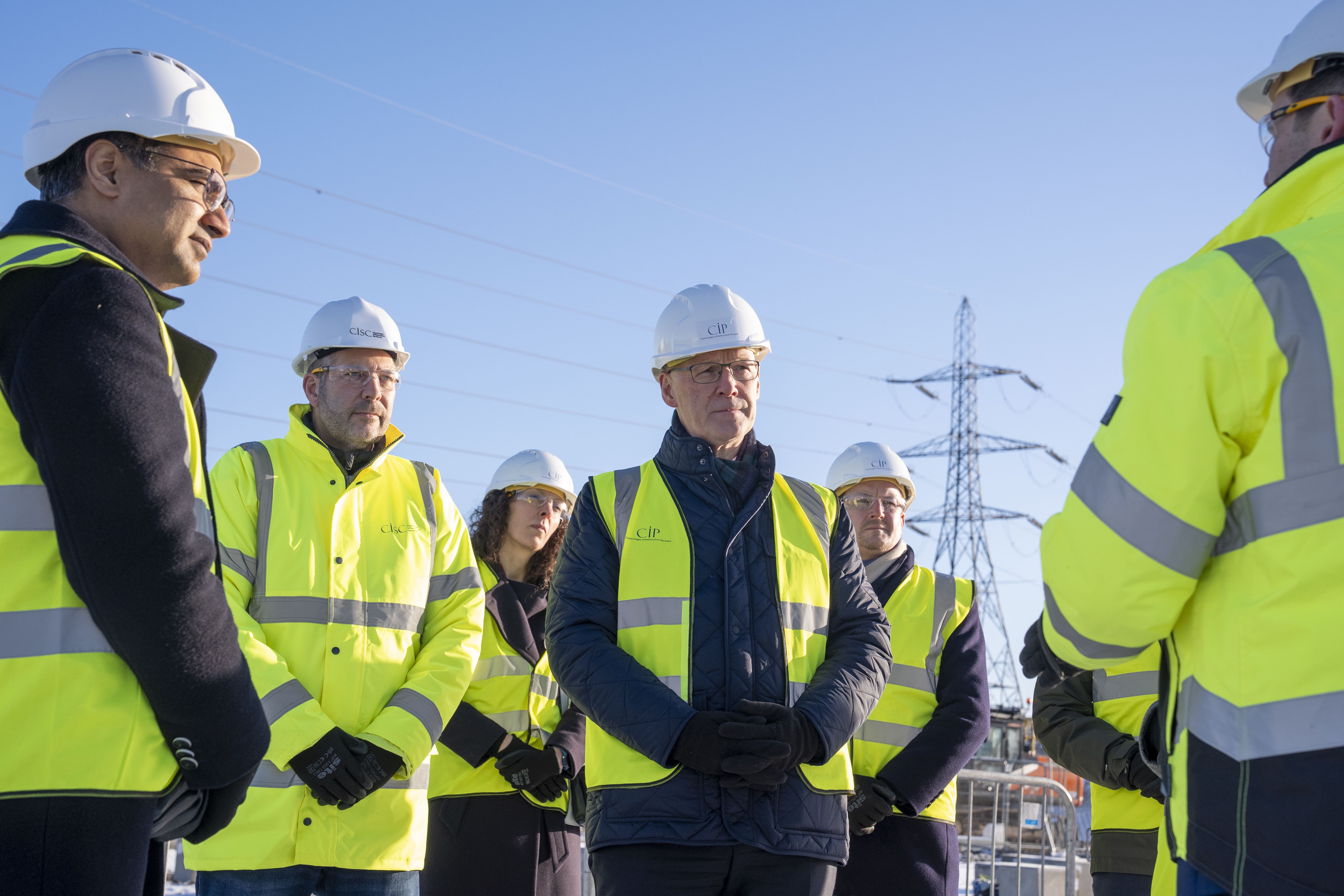Battery storage sites deemed ‘formidable’ for Scotland’s energy future
Three sites in Scotland will have a theoretical capacity to power 4.5 million homes for two hours.

An £800 million deal which will create two further battery energy storage sites in Scotland – each of which are the largest in Europe – has been hailed as “formidable” by First Minister John Swinney.
Investment fund manager Copenhagen Infrastructure Partners (CIP) has announced it will build two more storage sites in addition to the one under construction in Coalburn, South Lanarkshire.
When the three sites are complete in the coming years, they will have a combined energy storage capacity of three gigawatt hours and will theoretically be able to power 4.5 million homes for two hours.
The first site to the west of the M74, known as Coalburn 1, will be supplemented by another battery park on the eastern side of the motorway as well as another in Fife.
Each facility is made up of a number of enclosures housing lithium-iron-phosphate battery packs, as well as transformers connecting to the grid.
Ministers and energy sector leaders say battery storage will play a key part in the rollout of renewables, as they store excess power generated by windfarms and help to balance the energy grid.
The batteries, which make up the bulk of the cost of the project, are being supplied by Canadian Solar but are manufactured in China.
First Minister Mr Swinney and acting Scottish Energy Secretary Gillian Martin visited the construction site for Coalburn 1 on Wednesday. It is due to be connected to the grid in October.
Speaking to journalists, Mr Swinney said: “This is an essential component of our journey to net zero. It’s an essential component of creating resilience within our networks.
“The fact that Scotland has been able to attract such a formidable investment demonstrates that Scotland is open for investment and open for business.”
He said Coalburn 1, situated on the site of a former opencast coal mine, is “emblematic” of the journey Scotland has got to make.
Ms Martin acknowledged some communities near potential sites for battery storage have voiced concerns about their proximity to houses.
She told the PA news agency: “The concerns that we’ve had from communities are about the location – them being in the right place near housing developments.
“But there are very robust safety guidelines associated with battery storage, so people don’t need to worry about that aspect of things.”
She said a balance has to be struck between making Scotland an investable location for energy infrastructure and ensuring developments happen in “the right place”.
Nischal Agarwal, partner at CIP, said: “CIP’s latest investments in Scottish battery energy storage will support the UK’s pursuit of a clean power system by 2030 and delivering a net zero carbon economy by 2050.
“Battery storage which is well located, like our Coalburn and Devilla projects, enhances energy security, provides the grid with much needed flexibility, and enables low-cost renewables to be deployed faster.”
UK minister for investment Baroness Poppy Gustafsson said: “This £800 million commitment is a major vote of confidence in the UK’s investment environment and supports our mission to become a clean energy superpower.”